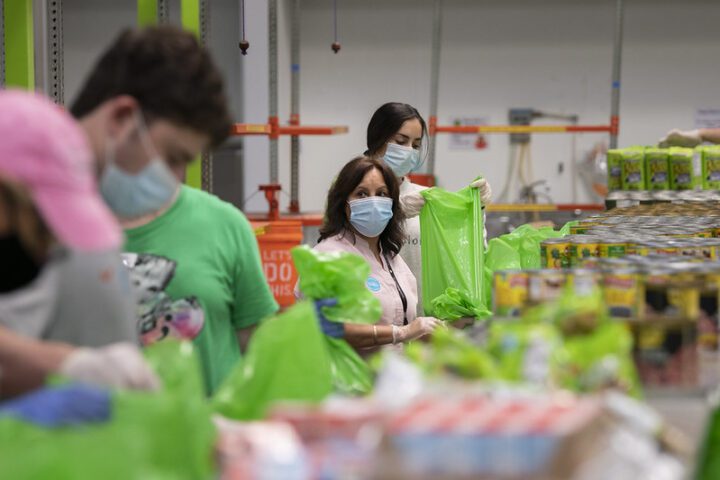Air pollution is becoming the new normal as air quality stoops slowly and consistently. Lifestyles with a byproduct as air pollution are being adopted unknowingly as our societies reach the pinnacle of technology and convenience. Mostly the causes for air pollution are vehicular emissions, industrial pollution, domestic smoke, wildfires, crop fires etc. Many home products are minor to medium air pollutants. In the past many reports connecting air pollution and health diseases have been published. Many of these reports categorise the elderly and children as the most vulnerable to air pollution.
A comprehensive new study, examining potential health risks from low levels of air pollution exposure in 68.5 million older Americans was published by Health Effects Institute. Reporting risks of mortality, including at the lowest levels of exposure to fine particulate matter (pm2.5) even below current U S National Ambient Air Quality Standards(NAAQS).
The study assessing adverse health effects of long- term exposure was carried out by Prof. F. Dominici and her team for four long years. The team reported a 6% to 8% increased risk of mortality among the people who were exposed to air with extra 10 micrograms per cubic meter (µg/m3) of PM2.5. The report was reviewed by the HEI Low-Exposure Epidemiology Studies Review Panel to confirm the conclusions. As per HEI’s latest Global Burden of Disease – Major Air Pollution Sources report, a major source of PM2.5 comes from the burning of fossil fuels, accounting for more than 1 million deaths globally.
America’s current annual national standard of 12 µg/m3 is about to be reviewed by the EPA. This level is higher than WHO’s recommendation. The findings from Prof. Dominici & Team’s report suggests that 143,257 deaths could have been prevented between 2006 and 2016 if the national air pollution standard would have been stricter.
Although air pollution has been declining over the past few decades in many higher income countries, several studies published in the past decade have reported greater risk of mortality & long- term exposures to low concentration of air pollutants.
As per India’s Central Pollution Control Board the air pollution standard for healthy air quality is 50µg/m3. This level is 5 times more than the recommended levels by WHO. The AQI in many parts of India cross these national standards every day. The Findings of the report by Prof. Dominici & Co. are to be taken into consideration while dealing with variants of Covid-19 and timely action & precaution can save millions of people all over the world. Prevention is always better than cure.

Low Levels Of Air Pollution Fatal For Older People – Research Finds
Latest from Health

Building a Healthier Narrative
Everyone has a story they tell themselves – about who they are, what they’re capable of, and how life works. Sometimes, those stories empower us. Other times, they quietly limit what we

Dubai Ranked #4 Most Polluted Globally As AQI Hits 190+ In 2025 Smog Spike
Dubai’s Air Quality Crisis: What You Need to Know Dubai’s Air Quality Crisis: December 2025 On December 2–3, 2025, IQAir listed Dubai among the world’s most polluted major cities, ranked 4th on

Thane Dust Crisis Rises as 73 Violations Emerge and MSRDC Says “Contractors Will Soon Be Instructed”
Thane’s Dust Crisis: Infrastructure Projects and Air Quality Environment Thane’s Infrastructure Dust Crisis: When Development Costs Clean Air Government infrastructure projects across Thane district create severe dust pollution, raising questions about enforcement

Mumbai Air Crisis (MMR): Why is Maharashtra Government Silent on Public Health Emergency?
Mumbai Air Crisis: Why is Maharashtra Government Silent on Public Health Emergency? GOVERNMENT FAILURE Mumbai Air Crisis: Why is Maharashtra Government Silent on Public Health Emergency? Mazagaon hits severe AQI above 300,

Mumbai GRAP-4: Govt Questioned As 59 Sites Get Notices And Mazgaon AQI Hits 300+ In Worsening Crisis
Mumbai Air Quality Crisis: GRAP-4 Implementation Tracker Mumbai Air Quality Crisis GRAP-4 Implementation Tracker | Real-time Status for MMR Region 🚨 HEALTH ALERT: Air quality worsened across Mumbai – several stations recorded

Harnessing the Power of Vitamins from Natural Sources
Setting the Stage: Why Whole-Food Nutrient Sources Matter Synthetic vitamins are typically isolated nutrient compounds produced industrially, sometimes in forms that are chemically identical to food vitamins and sometimes in slightly different

Ultra-Processed Foods: CDC Says Kids Get Nearly 62% Of Calories; Lancet, WHO Call It A “Systemic Threat”
Global Ultra-Processed Foods Crisis: Interactive Investigation Global Health Emergency Ultra-Processed Foods: The Global Health Threat Hidden in Plain Sight A new three-paper series in The Lancet exposes how industrial food corporations are

Asbestos In Children’s Play Sand: ACCC Recall After TEM Finds Tremolite, “It Was Just By Chance”
Asbestos in Children’s Sand Recall: Facts, Health Risks & Action Steps Health Alert November 2025 Asbestos Found in Children’s Play Sand: A National Recall Explained Schools across Australia and New Zealand closed

Air Cleaner Evidence Gap: Only 9% Of Nearly 700 Studies Tested Human Health Outcomes.
Air Cleaning Technologies: What Research Really Shows About Effectiveness Research Review Most Air Cleaning Devices Lack Real-World Health Evidence New research review of 672 studies reveals significant gaps between air cleaning technology

Delhi Air Quality Hits Severe 425 As GRAP-III Curbs Activate; Medanta Warns “No True Non-Smoker”
Delhi Air Quality Crisis: GRAP-III Invoked as AQI Breaches Severe Category AIR POLLUTION CRISIS Delhi Air Quality Hits Severe: GRAP-III Measures Invoked Across NCR Air Quality Index breaches 400 across multiple monitoring

Building a Healthier Relationship With Money
Rethinking how we view and interact with our finances Money isn’t just about numbers—it’s about emotions, beliefs, and habits that shape how we earn, spend, and save. Many people grow up with

GLP-1 Drug Prices Cut: Wegovy $149, Zepbound $299 on TrumpRx — “Promise Made. Promise Kept.”
On November 6, 2025, President Donald Trump announced agreements with pharmaceutical companies Eli Lilly and Novo Nordisk to reduce prices for GLP-1 obesity medications. The announcement took place in the Oval Office

November SNAP Benefits Ordered In Full By Friday As Judge Says Delays Are “Simply Unacceptable”
snap-final-backlinked.html November SNAP Benefits: Federal Court Order, Implementation & What You Need to Know A federal judge has ordered the Trump administration to fully fund Supplemental Nutrition Assistance Program (SNAP) benefits for

Cassava kills 200 yearly yet 500 million eat it: WHO reveals cyanide preparation gap
Cassava: The Double-Edged Root ⚠️ Food Safety Alert The Double-Edged Root: How Cassava Feeds 500 Million While Claiming 200 Lives Yearly A staple crop consumed across Africa, Asia and Latin America contains

Only 45% Compliant: BMC Issues Final Ultimatum for Air Pollution Sensors at 1,200 Construction Sites
BMC Air Quality Monitoring Mandate – Construction Sites Air Quality Compliance Alert BMC Issues One-Month Ultimatum for Air Quality Sensors at Construction Sites 45% of Mumbai’s 1,200 construction sites have complied with


